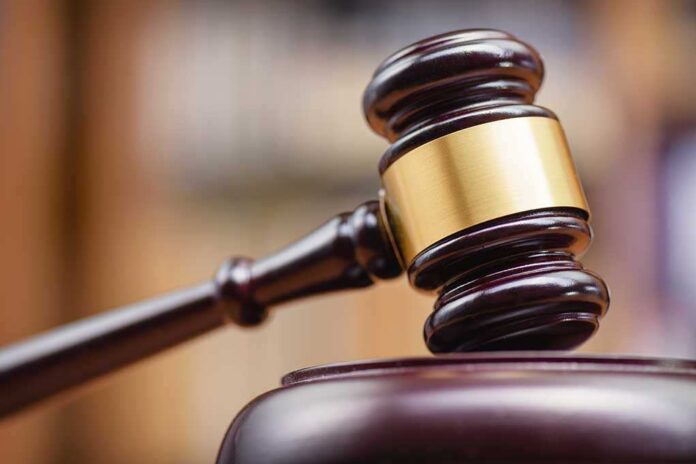
A high-stakes legal clash has erupted as the White House defies a federal judge’s order stopping deportation flights to El Salvador.
Quick Takes
- The White House proceeded with deportation flights to El Salvador despite a federal judge’s block.
- The administration invoked the rarely used Alien Enemies Act of 1798 to carry out deportations.
- El Salvador accepted deportees, including alleged gang members, amidst the judicial controversy.
- The Department of Justice has appealed the judge’s decision with further legal challenges expected.
White House Defies Court’s Halt on Deportations
The Trump administration deported hundreds of immigrants to El Salvador using the Alien Enemies Act of 1798 to circumvent the judicial order. Flights were carried out under Trump’s proclamation targeting the Tren de Aragua gang. U.S. District Judge James Boasberg issued an order to halt these deportations, but by that time, flights were already en route to El Salvador and Honduras, raising significant legal criticisms.
The administration claimed the court order was issued too late without a lawful basis. Even as flights continued, the White House has maintained its stance that the judge’s decision did not apply once these flights were over international waters. “The administration did not ‘refuse to comply’ with a court order. The order, which had no lawful basis, was issued after terrorist TdA aliens had already been removed from U.S. territory,” said White House press secretary Karoline Leavitt.
JUST IN: Trump Administration Defiantly Tells Radical Judge Boasberg to Pound Sand Following Controversial Ruling
The Trump administration clashed with far left DC District Judge James Boasberg after he blocked the deportation of dangerous Venezuelan Tren de Aragua gang members,… pic.twitter.com/JKJYr7Yjk2
— MAGA Resource (@MAGAResource) March 16, 2025
El Salvador’s Response
President Nayib Bukele of El Salvador showed his willingness to accept the deportees, including those allegedly involved in serious criminal activities, without hesitation. On social media, he mocked the court order, suggesting the delays caused no issue for El Salvador. “Oopsie…too late,” he remarked, highlighting his defiance toward the judicial attempt to halt deportations.
U.S. Deports Over 200 Alleged Venezuelan Gang Members to El Salvador Amid Legal Controversy
The United States has deported more than 200 alleged members of the Venezuelan gang Tren de Aragua to El Salvador, where they have been transferred to a high-security prison, despite a… pic.twitter.com/2E5phSjQri
— The Alkamba Times (@TheAlkambaTimes) March 17, 2025
Ongoing Legal Challenges
The Department of Justice has moved to appeal Judge Boasberg’s decision, asserting it will not act on the order if it isn’t legally resolved. The administration plans to challenge legal disputes on the Alien Enemies Act, affirming its potential to strengthen presidential authority. Secretary of State Marco Rubio emphasized the fiscal and security advantages of such deportations, stating, “We sent over 250 alien enemy members of Tren de Aragua which El Salvador has agreed to hold in their very good jails at a fair price that will also save our taxpayer dollars.”
The controversy has stirred potential constitutional concerns, with legal experts speculating about outcomes if the crisis escalates to the Supreme Court. A senior White House official remarked optimistically, “This is headed to the Supreme Court. And we’re going to win.”
Sources:
- Trump administration deports hundreds of immigrants even as a judge orders their removals be stopped
- Exclusive: How the White House ignored a judge’s order to turn back deportation flights
- White House blasts judge for attempting to halt deportation flights to El Salvador: ‘No lawful basis’












